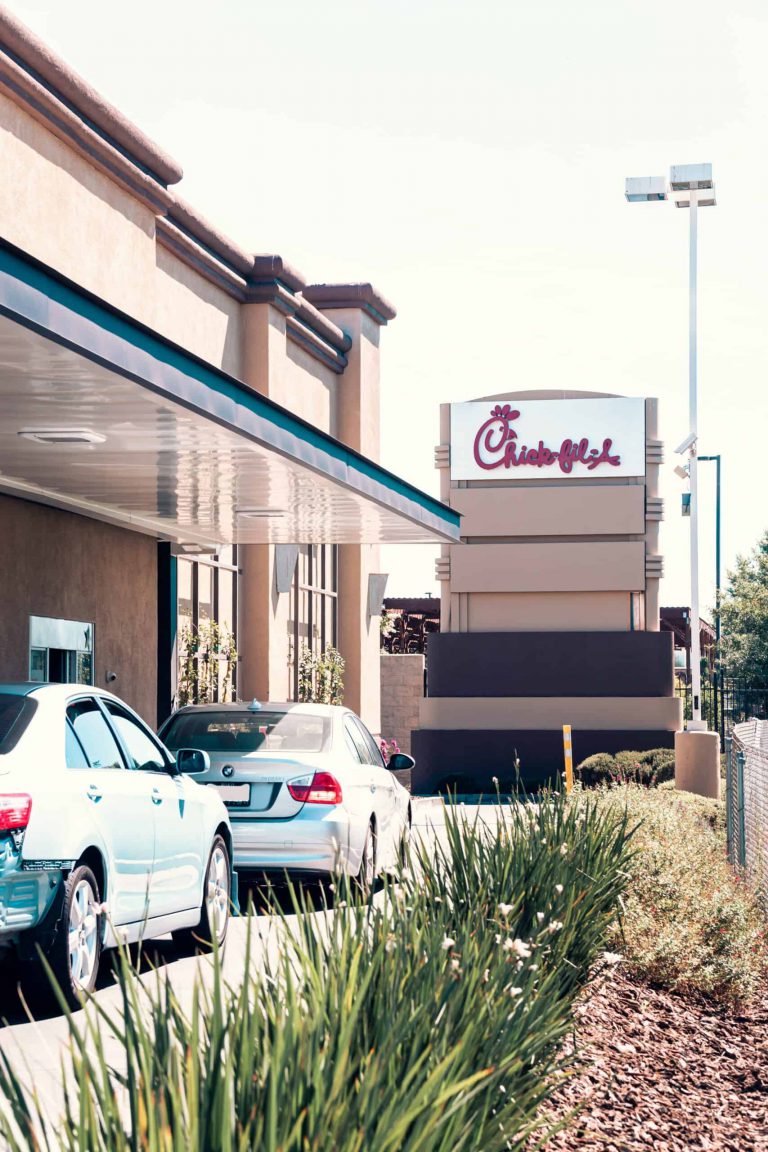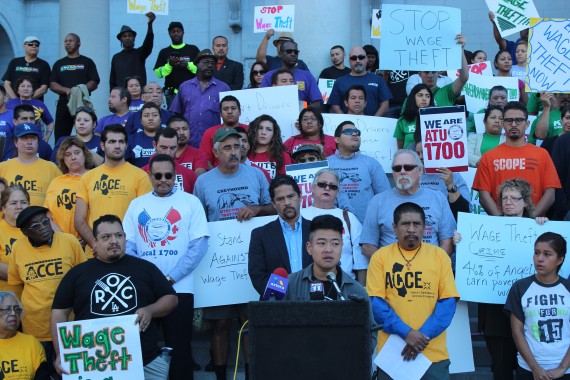
Rohan Chakravarty is a student at Harvard Law School and a member of the Labor and Employment Lab.
During the 2024 presidential campaign, both President Trump and Vice President Harris expressed support for eliminating taxes on tipped wages. The President did so in June 2024 after a Las Vegas server complained to him about the taxes. In August 2024, also in Las Vegas, Vice President Harris promised to “eliminate taxes on tips for service and hospitality workers,” a seemingly more circumscribed policy than the proposal from Trump.
Since the Presidential candidates announced their support for the tax move, Senator Cruz has introduced the No Tax on Tips Act, to allow taxpayers to deduct the amount earned by cash tips from their taxable income. The bill was supported by Democratic Nevada Senators Cortez Masto and Rosen. Florida Representative Byron Donalds later introduced a companion bill in the House. And at least 20 states have had similar proposals move through their state legislatures, although none have yet passed.
That these policy proposals were first made in Nevada makes sense given that Nevada has the highest concentration of tipped workers of any state. In a statement, the Culinary Workers Union of Nevada wrote that “this bipartisan legislation will allow hospitality workers to keep their tips without paying federal income tax on them,” describing such taxation as “unfair.”
Nonetheless, the most recent House budget resolution did not eliminate taxes on tips, despite President Trump’s campaign promise to do so. How should worker advocates understand the proposal?
Theoretically, there are at least three ways Congress might eliminate taxes on tips. First, as Senator Cruz has proposed, Congress could allow tipped employees to deduct the amount they receive in tips in a given year from their total taxable income for that year. Second, Congress could amend the Internal Revenue Code to exclude tipped wages from ordinary income. This differs from the first option because it would mean that the employee would not have to report tips to the IRS or seek any tax refunds because of tips at the end of the year. Third, Congress could offer tax credits at the end of each year to people who earn part of their income through tips, similar to the Earned Income Tax Credit (EITC) for low-income workers.
But it is worth reflecting on who these proposals leave out. First, perhaps obviously, the proposal only benefits tipped workers and leaves out huge numbers of other low-income workers who don’t earn tips. Indeed, over 90% of hourly low-income workers do not get tips. Further, as One Fair Wage, a nonprofit dedicated to raising restaurant workers’ wages, wrote in a Facebook post, nearly ⅔ of restaurant workers couldn’t benefit from the proposal because they don’t make enough to file federal income taxes. And eliminating taxes on tips might actually hurt those restaurant workers who do pay federal taxes by raising their incomes enough such that they lose eligibility for other tax credits, like the Earned Income Tax Credit (EITC) and the Child Tax Credit (CTC).
It is also true that, even within the service industry, some workers get tips and others don’t. One might imagine that in a single restaurant, waiters and other front-of-house staff might qualify for the tax break on tips, while chefs, janitors, and other back-of-house employees would not see the same tax benefits. In tax circles, this is described as a “horizontal equity” problem; two employees may earn the same amount of income but have different tax burdens.
Second, the monetary relief from eliminating taxes on tips might largely flow to employers over employees. How so? Employers might respond to the tax change by making more of their positions tipped instead of salaried and then paying their tipped employees an even lower base salary on the ground that the tax change makes up for the pay cut. As such, eliminating taxes on tips might just be a windfall to employers rather than relief for workers.
Third, other, non-service industries may look to exploit the new opening in the tax code. For example, it might be reasonable to expect the financial and legal industries to try classifying employees’ year-end bonuses as tips to tax advantage their employees. Financial and legal service providers might try to convince their clients to pay part of their fees as “tips” for services. Exploitation seems especially possible under the Republicans’ version of the bill, which places practically no limitation on what qualifies as a tip. The fact that these industries employ generally high-earners would be irrelevant here; only some of the proposed versions of the policy specify limitations on the amount that taxpayers may deduct from their total year’s earnings. Senator Cruz’s version contains no such limitation.
Finally, if the goal of these proposals is to send money to low-income workers, why not just raise the minimum wage, using the lever that most uniformly helps those workers? Efforts to increase the minimum wage may well be stalled under the current administration. Under the Fair Labor Standards Act (FLSA), the federal minimum wage is $7.25 per hour. But the federal minimum wage for tipped employees is $2.13 per hour before tips, which means that employers may credit up to $5.12 per hour of tips against minimum wage. It is not clear that there is any benefit to having a tipped minimum wage separate from the total minimum wage. If the stated goal of eliminating taxes on tips is to get monetary relief to workers, the government should pursue that goal more directly by ensuring consistently higher wages rather than continually subjecting workers to the fluctuations of tipped wages.










Daily News & Commentary
Start your day with our roundup of the latest labor developments. See all
July 11
Regional director orders election without Board quorum; 9th Circuit pauses injunction on Executive Order; Driverless car legislation in Massachusetts
July 10
Wisconsin Supreme Court holds UW Health nurses are not covered by Wisconsin’s Labor Peace Act; a district judge denies the request to stay an injunction pending appeal; the NFLPA appeals an arbitration decision.
July 9
In Today’s News and Commentary, the Supreme Court green-lights mass firings of federal workers, the Agricultural Secretary suggests Medicaid recipients can replace deported farm workers, and DHS ends Temporary Protected Status for Hondurans and Nicaraguans. In an 8-1 emergency docket decision released yesterday afternoon, the Supreme Court lifted an injunction by U.S. District Judge Susan […]
July 8
In today’s news and commentary, Apple wins at the Fifth Circuit against the NLRB, Florida enacts a noncompete-friendly law, and complications with the No Tax on Tips in the Big Beautiful Bill. Apple won an appeal overturning a National Labor Relations Board (NLRB) decision that the company violated labor law by coercively questioning an employee […]
July 7
LA economy deals with fallout from ICE raids; a new appeal challenges the NCAA antitrust settlement; and the EPA places dissenting employees on leave.
July 6
Municipal workers in Philadelphia continue to strike; Zohran Mamdani collects union endorsements; UFCW grocery workers in California and Colorado reach tentative agreements.